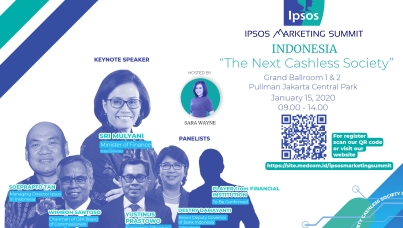Flair Thailand 2017 - Beyond the concerns
Welcome to Ipsos Flair, Thailand. Our 2017 rendition, “Beyond the concerns”, offers a unique perspective on the mood of the country. 2017 represents a crucial year for the Thai economy which has latterly suffered from weak growth.
- Thailand is in sorrow. The prevailing sentiment has latterly been one of deep sadness following the recent death of His Majesty King Rama IX and an end to the seven decades of stability he reigned over. The accession of His Majesty King Rama X signifies the prospect of genuine hope and renewal.
- Thailand is coming under strain. The future of ‘Thainess’ is under threat, with various indicators giving cause for concern: falling exports, declining automotive production, the proposed protectionist policies of Donald Trump, an ageing population (by 2050, one in three Thais will be 60 or older), the still small proportion who can speak English, and regional competition attracting investors and tourists alike.
- Thailand is experiencing a crucial year. The Thai economy has recently suffered from weak growth. The government has vowed to deliver Thailand 4.0, a value-based economy focused on innovation and sustainable technology, demonstrating a clear ambition to move the country ahead. However, without supporting details it remains unclear how this will be achieved.
- Thailand family structure is changing. More and more 30-year-olds are living at home with their parents. On the one hand, they remain single for much longer, the birth rate drops and the population ages. On the other hand, those who stay with family and work have much greater purchasing power than those who have to pay all the expenses of housing and everyday living on their own.
- Thailand is an Internet addict. Thailand is one of Southeast Asia’s leading countries in terms of Internet use, ahead of Singapore. E-commerce is developing fast; just as with any monopoly under threat, traditional distribution must adapt and respond with increasingly attractive offers and weighty discounts.
- Thailand takes pride in its local brands. They’re closer: since most people still do not speak fluent English, everything that is expressed in Thai is immediately understood, decoded and credible (or not). They’re competitive: Thai companies have waged war against the leaders. The Pizza Company has crowded out Pizza Hut, just as Est Cola and Chang have eliminated Pepsi Cola and Carlsberg.
- Thailand likes boutiques. On the one hand, there are amazing luxury shopping malls. On the other, there is increasing opportunity for niche brands or boutique stores for customers striving for individuality - seeking “something more” in brands able to reflect their personalities or customised to who they are as individuals.
- Thailand knows it must tackle inequality. The rich to poor gap is bigger than in similar-sized economies such as Colombia, Brazil, Malaysia and Indonesia: Thailand is the only one of the above to see an increase in inequality in recent years, whereas the others saw a narrowing of the gap. Thailand is among the top countries in the world in terms of income disparity, with money concentrated in the hands of a small, wealthy group. The facts are clear, and remedies are under discussion among economists and politicians
- Thailand faces a health challenge. The increase in the older age group is one problem, but another is the proliferation of overweight and obese Thais. Thailand is among the top five Asia-Pacific nations with high numbers of obese people, and soon Thailand will have a whopping 21 million members of the "fat tummy network", according to the Ministry of Public Health.
- Thailand needs to clean up! It may seem amazing that people who carve fruit and vegetables into delicate and enchanting forms can remain indifferent to canals dotted with plastic bottles and waste of all kinds, which causes flooding among other problems. Plastics account for a fifth of all garbage, and Thais use an average of eight bags per person a day! Tackling environmental issues require measures from the government, but more importantly a change in consumers’ minds.

![[Webinar] One Mind Many Truths: An Ipsos APAC Webinar on Generations](/sites/default/files/styles/list_item_image/public/ct/event/2023-10/MicrosoftTeams-image%20%2810%29_0.png?itok=z8oqhKPD)

